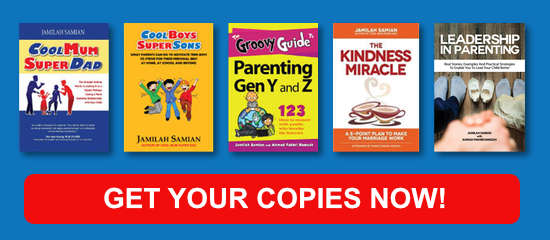For a parent or teacher or caregiver tending to a little child, language is a big deal. Language is the path of effective communication; once a child is able to express his emotions and thoughts in words, the guessing game tends to become less frustrating. You have a better idea what a child needs.
According to research, both quality and quantity matter when it comes to a child’s language development. The study reported that by age 3, huge differences exist in the language spectrum in terms of total words spoken to 3-year-olds. In some families, 3-year-olds have heard as many as 40 million words; in some others only 10 million. Although the human brain is plastic and continues to respond to stimulation for as long as we live, it undergoes tremendous growth before the age of three. According to the report The Early Catastrophe: The 30 Million Word Gap by Age 3:
“Simply in words heard, the average child on welfare was having half as much experience per hour (616 words per hour) as the average working-class child (1,251 words per hour) and less than one-third that of the average child in a professional family (2,153 words per hour).”
Equally important, according to the study, performance in third grade follows performance at age 3.
Of course every language is different with its own nuances. Although this study was done in America, language proficiency is much needed no matter where you live in the world. The ability to speak clearly and confidently is important for a child, both for her personal as well as professional lives. To enable your child to express herself eloquently, a wide-varied vocabulary is crucial. A rich vocabulary is like a treasure trove of sorts; the more you use it, the more your brain gets used to pulling words out whenever you need it. The more you talk to your child, the richer his vocabulary becomes; the more prepared she is for future growth.
Words could mean reading a simple picture book. It could mean whispering words of comfort as you hold her close to your bosom. It could mean chattering away while you and your child complete a colouring book together. It could mean singing or cooing as you dance on the kitchen floor while waiting for his favourite soup to boil.
Perhaps a little planning might do wonders. Think ahead what you’d like to introduce to your child the following day or later in the day. Think of vivid but simple words and see how you could reinforce them throughout the day. Examples of vivid words: walk, whine, stroll, gobble, nibble. Be engaging, so your child can begin to absorb and understand the context of these vivid words.
Simple and doable.
What are the pitfalls?
Some parents are bent on getting their parenting act right to the extent that all they do is talk to the child only when the child did something wrong. An absolute No-No. One parenting principle that you must know: What gets noticed gets done. To do that, be on alert, say what your child is doing right and there you go: more chances for you to keep talking to your little one.
Other parents are so busy with work, they worry a lot about what the kids eat but could not care less to talk to their children. They have no idea that talking to a little child is one of the easiest pathways to making him smart.
Yet others find it a bother to answer their children’s never-ending questions, especially from the age of two onwards, when children are so precocious, it would seem that no amount of talking and responding is enough for them.
To conclude, it is not enough that you plan what your child’s next meal will be. Be mindful of the words that you use; talking is part of the critical diet, the brain food that your child needs. Showing interest in what a child does, making encouraging comments, stretching a child’s hanging sentence will nurture his or her ever-growing vocabulary.









